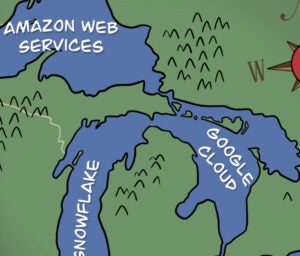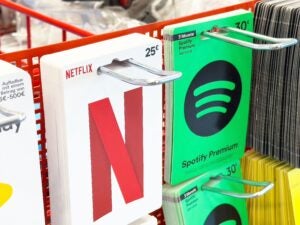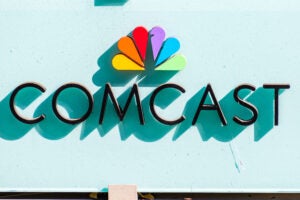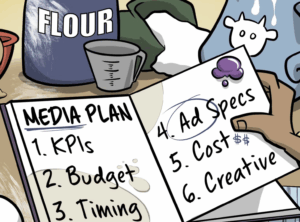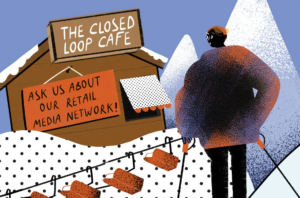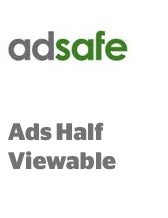 Here’s today’s AdExchanger.com news round-up… Want it by email? Sign-up here.
Here’s today’s AdExchanger.com news round-up… Want it by email? Sign-up here.
Lowering Standards
Fewer than half of all online ads are viewed for even a second, according to online ad effectiveness provider AdSafe Media. The company’s study of the state of viewability suggests that only 49.9 percent of ads sold directly meet new industry standards, reports Adweek’s Tim Peterson. Read it. And, access the AdSafe report here.
Maxifying Asia
Dentsu’s venture firm known as the “Dentsu Digital Fund” has taken a “strategic” stake in publisher inventory optimization platform Maxifier. A press release states, “The investment will see the Dentsu Group collaborate with Maxifier, particularly through its technology-driven digital communication subsidiary Cyber Communications, Inc. (cci), examining joint business development plans that encompass the entire Asian market.” Read more. How this works with the OpenX/Dentsu relationship remains to be seen. Maybe it doesn’t?
Fetch Keywords
Looks like Ebay-owned retargeter Fetchback has productized its search retargeting product and called it… FetchbackIntent. The idea here is that marketers can target consumer intent according to keywords they’re searching for. This targeting data likely comes from cookies set according to search keyword referrals on publisher sites. Or maybe Ebay.com? See the product page. The Holy Grail of search retargeting remains the user profile generated through any major search engine – umm, that would be Google. Privacy concerns remain a significant barrier here, but Big G is moving closer.
Do Not Track, Just Worry
Digital marketers don’t need to be reminded that Microsoft’s “do not track” default setting in its latest Internet Explorer browser is bad news. But in case there’s any uncertainty, Jeff Lerner, VP, digital media, for digital marketing firm Prime Visibility, outlines the problems. “One solution websites might try is asking visitors for permission to remarket to them – although the visitor would then have to alter her cookie settings for your site, should she agree,” Lerner says, writing in ClickZ. “We could see dollars being shifted to search network campaigns, social media endeavors, or just being cut altogether.” Read more.
Wrong Part Of The Funnel
AdExchanger Daily
Get our editors’ roundup delivered to your inbox every weekday.
Daily Roundup
On Pando Daily, startup consultant Nat Kausik says that the demand generation (upper funnel) platforms of GroupOn, Yahoo and Facebook is what ails them. He writes, “We hear from each of these companies that they are improving their technology, or changing their leadership, or restructuring their organizations to unlock the huge potential of their user base. But the real problem is that Demand Generation is not a viable format for building a profitable business on the Internet, and is in secular but permanent decline.” He has a solution. Read more.
Pay-for-Performance Agencies
Mediabrands CEO Matt Seiler wants fee structures to mimic client business goals. In a Forbes video interview, he says, “Here’s what’s wrong with commission: I will make sure I spend every dollar of my client’s money that I possibly can because I get paid based on that sum… And I’m also biased toward whatever medium has the greater commission.” Odd insight: Seiler says procurement agents are among the least receptive to this idea. CMOs like it. Watch.
Think Big (Data), Act Local
Analyst Michael Boland contemplates the onrushing trains of big data and hyperlocal in a piece for StreetfFight. When they meet, humans and places will be imbued with demo- and psychographic attributes. “This kicks into ludicrous speed as smartphone penetration breaks the 50 percent barrier, resulting in lots more signals to play with.” Innovators here are Sense Networks, PlaceIQ, Locu, Factual, JiWire, WHEREads, and Urban Mapping. Read it.
Digital Marketing Show
In the name of “lead gen” (old) and “inbound marketing” (new), marketing software company HubSpot (AdExchanger Q&A) managed to bring 2,800 people to Boston for a convention focused on its products and related services. Boston.com reports the news. An impressive turnout and reminiscent of the 4,000+ at Adobe’s digital conference in March. Many are looking for a digital edge. Or maybe in HubSpot’s case, it’s to meet Cindy Lauper?
You’re Hired!
- Carolyn Bekkedahl Joins Meredith – Mediabistro
- Aegis-owned iProspect Appoints New President, U.S., And Chief Client Officer – press release
- Aggregate Knowledge Hires New VPs – press release
- Yahoo! Hires New Chief Marketing Officer – Marketing Pilgrim
But Wait. There’s More!
- That Insanely Complicated Social Media Marketing Graphic Just Got Updated – The Business Insider
- The PC Isn’t in a Major-League Slump, It’s Headed to the Minors – Wired
- Ad Agency Uses ‘Draw Something’ App to Find Creative Workers – Adweek



